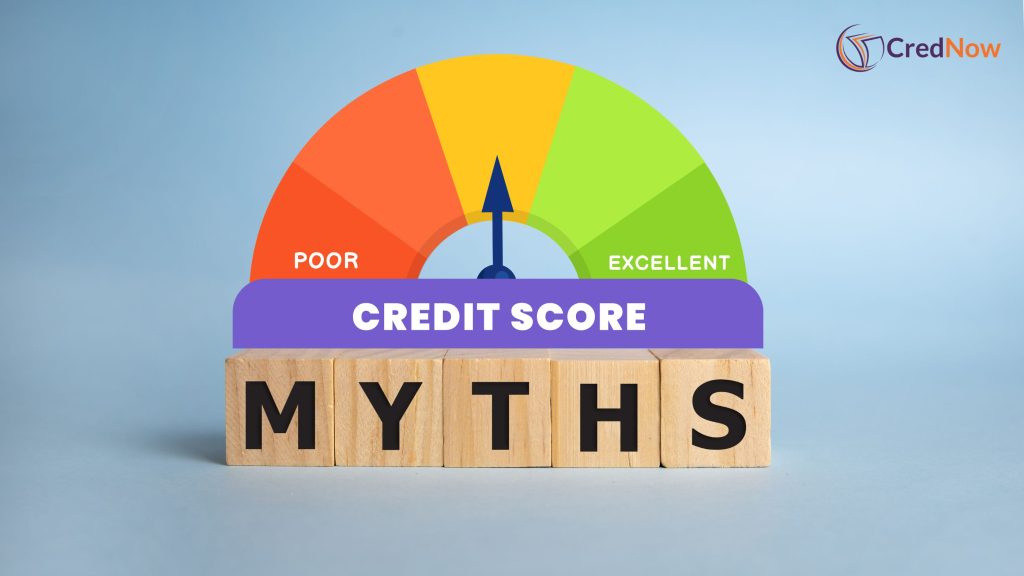Your credit score plays a crucial role in your financial life, yet there is a lot of misinformation floating around that could be holding you back. When it comes to Credit Score Facts vs. Fiction, let’s bust some common myths and get to the truth about what really affects your credit score.
1. Checking my credit score will hurt it
Fiction: Many people avoid checking their credit score, fearing it will cause damage.
Fact: When you check your own credit score, it is considered a “soft inquiry” and has zero impact on your score. In fact, regularly monitoring your credit score is a smart financial habit that helps you catch errors and potential fraud early.
2. A good credit score is all I need for loan approval
Fiction: Having a high credit score guarantees loan approval.
Fact: While a good credit score is important, lenders look at multiple factors, including:
- Your income and employment status
- Debt-to-income ratio
- Age requirements
- Residence location
- Complete KYC documentation
Think of your credit score as just one piece of the financial puzzle.
3. Having no loans means a perfect credit score
Fiction: Avoiding debt completely leads to an excellent credit score.
Fact: You actually need some credit history to build a credit score. Without any credit cards or loans, credit bureaus don’t have enough information to calculate your creditworthiness. The key is using credit responsibly, not avoiding it entirely.
4. Closing old credit cards will boost my score
Fiction: Getting rid of unused credit cards improves your credit score.
Fact: Keeping old credit cards active can actually help your score.The length of your credit history matters, and those old cards contribute to it. Instead of closing unused cards, consider:
- Using them occasionally for small purchases
- Converting them to no-fee options if possible
- Keeping them active to maintain your credit history
5. Multiple credit cards will damage my score
Fiction: Having several credit cards automatically hurts your credit score.
Fact: The number of credit cards you have matters less than how you use them. Multiple cards can actually benefit your score when managed responsibly by:
- Lowering your overall credit utilization ratio
- Building a stronger payment history across accounts
- Demonstrating your ability to handle credit responsibly
The key is not how many cards you have, but maintaining low balances and making all payments on time.
6. CIBIL is the only source for credit scores
Fiction: You can only get your credit score from CIBIL.
Fact: India has four RBI-registered Credit Information Companies (CICs), each offering credit scoring services:
- CIBIL
- Equifax
- Experian
- CRIF High Mark
Since each company uses its own scoring algorithm, your score might vary across these bureaus. This is completely normal and gives you multiple perspectives on your creditworthiness.
Related Read:
How to get CIBIL score corrected
7. Paying off debt instantly fixes my credit score
Fiction: Debt repayment leads to immediate credit score improvements.
Fact: While paying off debt is absolutely the right move, credit score improvements take time. Your score considers long-term patterns of responsible credit use, not just single actions. Stay patient and consistent with your payments.
8. My income directly affects my credit score
Fiction: Getting a raise will automatically improve my credit score.
Fact: Your income isn’t directly factored into your credit score calculations. What matters is how you manage your credit, regardless of how much you earn. However, income changes can indirectly affect your ability to make timely payments.
9. Debit cards and digital payments build credit
Fiction: Using debit cards and digital payment methods regularly will improve your credit score.
Fact: Neither debit cards nor digital payment methods (like UPI, digital wallets, or online banking) affect your credit score at all. Here’s why:
- Debit cards simply access your own money in your bank account
- Digital payments are just modern ways to transfer your existing funds
- Only credit-based products (where you borrow money) impact your score
- Your credit score only considers how you handle borrowed money, not your daily spending habits
10. A poor credit score means no loans ever
Fiction: Bad credit makes it impossible to get any type of loan.
Fact: While a low credit score can make borrowing more challenging, options still exist:
- Secured loans and credit cards
- Loans with cosigners
- Alternative lenders
It is important to focus on rebuilding your credit while exploring these options.
The Bottom Line
When separating credit score facts vs. fiction, understanding what truly impacts your credit score is crucial for making informed financial decisions. Don’t let common credit score myths hold you back from building and maintaining good credit. By learning the real credit score facts rather than believing credit card myths, you will discover that responsible credit use, consistent payments, and regular monitoring are your best tools for a healthy credit score.
Quick Insight: Make it a habit to check your credit score quarterly and focus on steady, responsible credit management rather than quick fixes.




